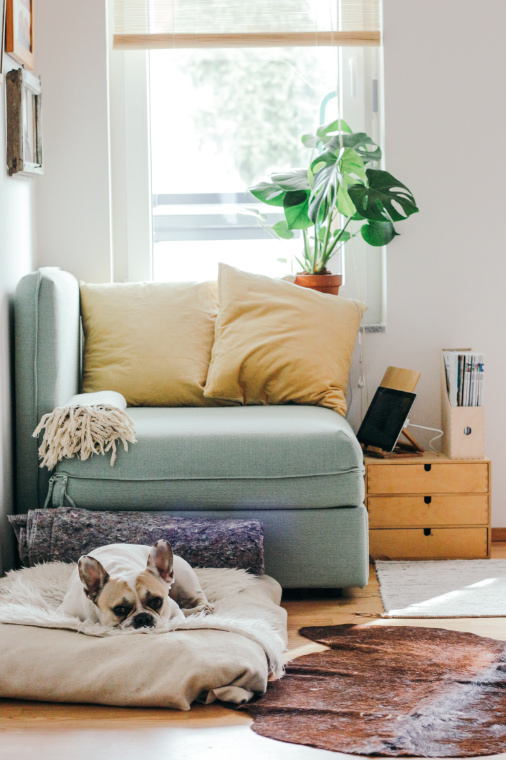Phase 1
Phase 1 - Initial assessment, discuss management options, support network and technical set-up.
The first step is to perform an initial assessment of what your dog can do now.
Based on the background information you provide, and the behavioural observations during
our initial consultation, I can determine your starting point. During this consultation we will
also discuss support and management options.
A consultation with your veterinarian is always advised, in order to rule out, or identify and resolve,
any medical issues which could be contributing to your dog's increased sensitivity to separation.
This is also an opportunity to discuss the potential introduction of anti-anxiety medications,
in order to support your dog's behaviour change program.
Phase 2
Phase 2 - Learning to identify your dog's body language tells and stress thresholds,
in order to develop your dog's customised plan.
Together, we are going to journal, observe and review recordings of your dog's behaviour and body language,
at different times of the day, and during different activities, in order to identify when
your dog feels relaxed and comfortable, and when your dog starts to feel stressed.
This initial "detective work" is crucial to your success. Because, in order to develop and adjust
your dog's daily plans, you will need to learn to identify your dog's subtle stress signals.
This knowledge will help you to keep your dog under their threshold, during your separation practice exercises,
so you can achieve progress.
Phase 3
Phase 3 - Create your customised separation plan, recording reviews, twice weekly online consultations to assess
your dog's progress and to adjust your plan accordingly, so you can achieve success.
Based on what we have learnt in phase 1 and 2, you can now start practising separation exercises with your dog,
based on the advice and plans we created specifically for your dog's separation related behaviour.
You can share recordings for review, and we do twice weekly catch-up consultations in order to practice together
and discuss struggles and progress, and to adjust your separation success plan , as needed.

Support options
Optional - Selective progress evaluations and ongoing support options.
Due to the nature of dog separation related behaviour problems, and the fact that every dog is an individual,
and every dog / human partnership and lifestyle constraints are unique - it is not possible to provide a set time-frame, nor a guarantee,
that your dog's separation struggles will be fully resolved during the course of this intensive private coaching program.
However, if you have been able to follow the instructions of your dog's customised separation plan, you should notice a significant improvement in your dog's ability to feel safe and relaxed when separated.
Considering dogs are by nature highly social, separation is a challenging dog adaptation struggle, which impacts your dog's overall health and welfare, as well as your wellbeing.
It is advisable to work through this behaviour struggle gradually and consistently - at your dog's pace - in order to support your dog to shift their nervous system and emotional responses, if you wish to achieve lasting results.
Once you have completed one of our Dog Separation Success prrograms, and would like to continue with our support, we can develop a customised, ongoing support plan with you.







